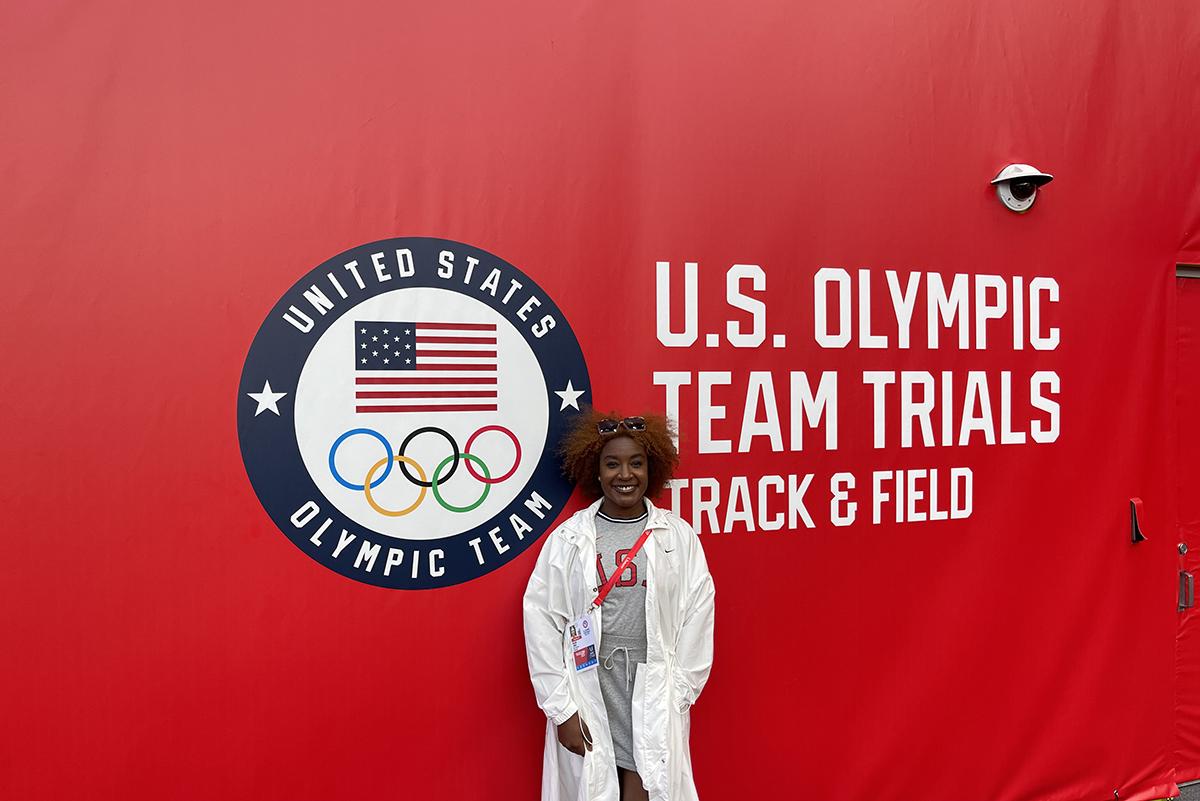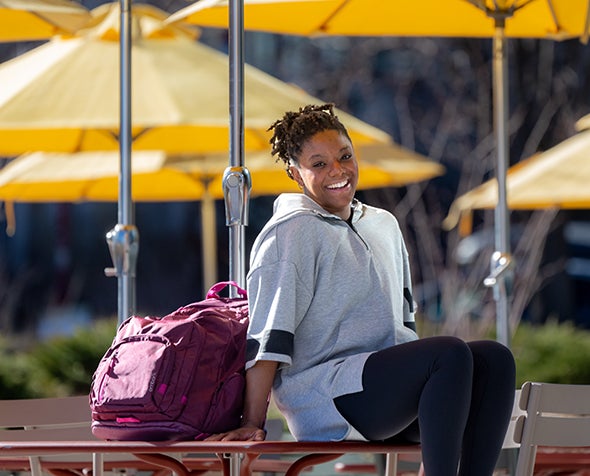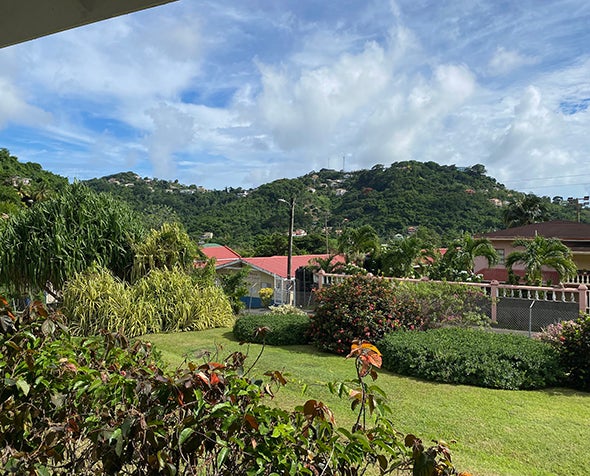Meet the Professor Who Helps Olympic Track & Field Athletes Keep Their Heads in the Game
As an Olympic sport psychology consultant with USA Track & Field, DU’s Breigh Jones-Coplin helps athletes with everything from beating teammates to dealing with the media.

As one of the most decorated sprinters in Austin Peay State University history, Breigh Jones-Coplin knows the track like the back of her hand.
Jones-Coplin, who competed in the 400-meter dash, won 20 times as an individual during her collegiate career and qualified for the 2013 Pan American Junior Games in Colombia.
She graduated from Austin Peay in 2016 with a bachelor’s degree in psychology and was inducted into the school’s 2022 Hall of Fame class. Jones-Coplin went on to earn a master’s degree in sport and performance psychology in 2018 and a doctorate in clinical psychology (PsyD) in 2022 from the University of Denver.
She’s now a clinical assistant professor in the Graduate School of Professional Psychology (GSPP).
Jones-Coplin has returned to the track, this time not as a competitor but as a sports psychology consultant for USA Track & Field.
In this role, Jones-Coplin travels to international competitions to help U.S. athletes perform at the highest level and be mentally fit. She also presents on the topic of sports psychology more broadly to the track and field community.
As the 2024 Summer Olympics begin in just a few days, she will be watching the track and field events closely.
“I know what these high-competition environments feel like; I know the language of track; I know the nuances of each event. So, it's really served me very well to be able to know about track and be a fan of it as well,” she says.
Last month, Jones-Coplin traveled to Eugene, Oregon, for the 2024 U.S. Olympic Team Trials—her first time attending an Olympic trial— where she had a chance to be “on the ground” working with some of the sport’s fiercest competitors.
Jones-Coplin set up shop in the medical tent alongside her sports medicine colleagues, but she could also be found circling the track so athletes could seek her out in a less formal setting.
Having worked at the Pan American Games, the World Athletics Relays and the North American, Central American and Caribbean Championships, she found one of the biggest differences at the Olympic Trials was that athletes have to get into the mindset of potentially defeating those who will eventually be their teammates.
“In international competitions, there are very pointed competitors. They are going to represent the U.S. together at some point, but they are all competing against each other in this phase of competition, so that adds another layer of complexity,” Jones-Coplin says.
The role of the media, especially as it relates to an event as widely televised as the Olympics, is also an aspect Jones-Coplin navigates with athletes.
“Media is a double-edged sword because a lot of athletes rely on media coverage, with track being such a low revenue generating sport,” she says. “People assume that because they’re a professional athlete, they make a lot of money, but unless they have sponsorships, that’s not always the case.”
Jones-Coplin often stresses the need to “control the controllables” but also recognize the things that are out of their hands, particularly when it comes to how an athlete is portrayed in the media.
Since competing at the collegiate level, Jones-Coplin has seen a notable shift in the stigma surrounding sports psychology and mental health in sports more broadly. While Olympic gymnast Simone Biles might be the most well-known example, Jones-Coplin is seeing more instances of athletes becoming more comfortable working with a sports psychologist and talking about it publicly—something she believes will help future generations of athletes.
While recognizing the progress is important, there is always more work to be done, Jones-Coplin says.
“My hope is that we continue to grow and that institutions take what we do as seriously as they take massage therapists and chiropractors, so that we’re always accessible, not just during major competitions—because by the time these major competitions come around, it may be too late,” she says.
“Some of this groundwork needs to be laid months, even years, before people come and compete at an Olympic competition.”











